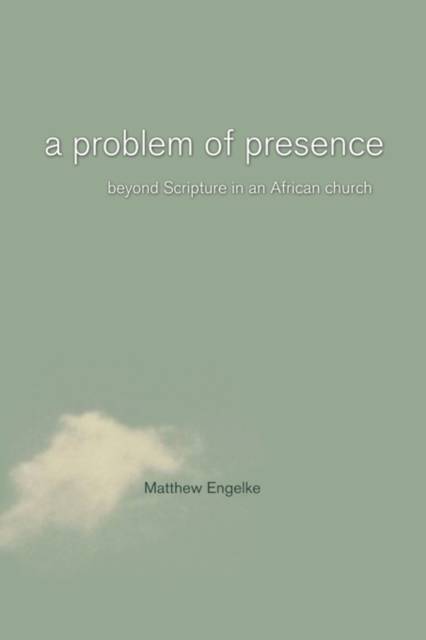
- Afhalen na 1 uur in een winkel met voorraad
- Gratis thuislevering in België vanaf € 30
- Ruim aanbod met 7 miljoen producten
- Afhalen na 1 uur in een winkel met voorraad
- Gratis thuislevering in België vanaf € 30
- Ruim aanbod met 7 miljoen producten
Zoeken
€ 59,45
+ 118 punten
Omschrijving
The Friday Masowe apostolics of Zimbabwe refer to themselves as "the Christians who don't read the Bible." They claim they do not need the Bible because they receive the Word of God "live and direct" from the Holy Spirit. In this insightful and sensitive historical ethnography, Matthew Engelke documents how this rejection of scripture speaks to longstanding concerns within Christianity over mediation and authority. The Bible, of course, has been a key medium through which Christians have recognized God's presence. But the apostolics perceive scripture as an unnecessary, even dangerous, mediator. For them, the materiality of the Bible marks a distance from the divine and prohibits the realization of a live and direct faith.
Situating the Masowe case within a broad comparative framework, Engelke shows how their rejection of textual authority poses a problem of presence--which is to say, how the religious subject defines, and claims to construct, a relationship with the spiritual world through the semiotic potentials of language, actions, and objects. Written in a lively and accessible style, A Problem of Presence makes important contributions to the anthropology of Christianity, the history of religions in Africa, semiotics, and material culture studies.
Situating the Masowe case within a broad comparative framework, Engelke shows how their rejection of textual authority poses a problem of presence--which is to say, how the religious subject defines, and claims to construct, a relationship with the spiritual world through the semiotic potentials of language, actions, and objects. Written in a lively and accessible style, A Problem of Presence makes important contributions to the anthropology of Christianity, the history of religions in Africa, semiotics, and material culture studies.
Specificaties
Betrokkenen
- Auteur(s):
- Uitgeverij:
Inhoud
- Aantal bladzijden:
- 321
- Taal:
- Engels
- Reeks:
- Reeksnummer:
- nr. 2
Eigenschappen
- Productcode (EAN):
- 9780520249042
- Verschijningsdatum:
- 21/05/2007
- Uitvoering:
- Paperback
- Formaat:
- Trade paperback (VS)
- Afmetingen:
- 165 mm x 227 mm
- Gewicht:
- 449 g

Alleen bij Standaard Boekhandel
+ 118 punten op je klantenkaart van Standaard Boekhandel
Beoordelingen
We publiceren alleen reviews die voldoen aan de voorwaarden voor reviews. Bekijk onze voorwaarden voor reviews.








